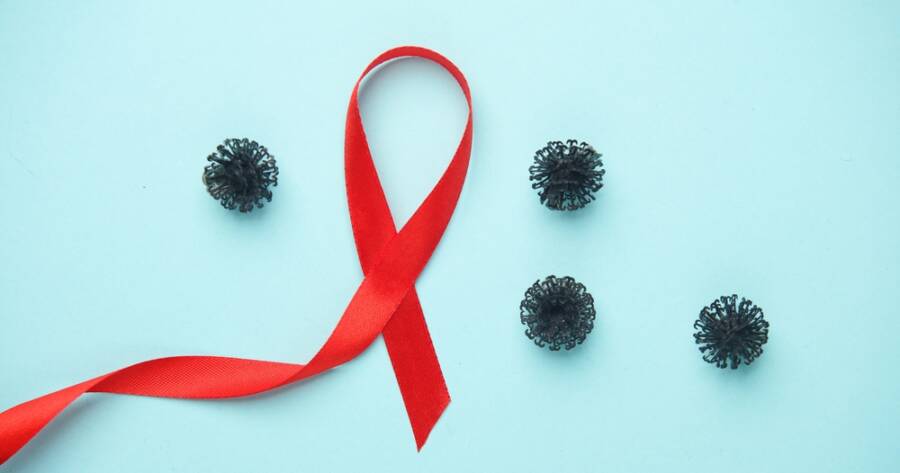While HIV can be treated, there’s a serious concern about the condition — many people don’t know they’re infected. Fortunately, you can learn the early signs of HIV with an online search, which could help you get a diagnosis and treatment earlier. Human immunodeficiency virus (HIV) is a virus that can destroy the immune system, and over million people in the U.S. are living with it today. When HIV first infects the body, few changes are noticeable.
Early Symptoms of HIV
Due to subtle symptoms in the earliest stage of the virus, many people don’t realize they’ve become infected. About 15 percent, or one in seven people, of those who have HIV don’t know it.
Doctors measure HIV and its signs and symptoms in stages. The first stage, which is called acute HIV infection, is very subtle. After infection, the immune system starts working to fight the virus. This stage typically occurs within two to six weeks after infection.
When the virus is in this stage, you’ll start noticing the earliest symptoms of HIV. Unfortunately, these symptoms are similar to the symptoms of other common viruses, such as the flu, including:
- Headache
- Fatigue
- Muscle aches
- Sore throat
- Fever
- Swelling in the lymph nodes
- Red, non-itchy rash on the torso
Typically, these symptoms occur for just a week or two and then they disappear completely. This can make it seem like everything is back to normal in your immune system.
How HIV Progresses
HIV is a rapidly-evolving virus, wrecking immune system within just a few weeks. As the virus progresses, the infection can become increasingly difficult to manage. So, when your flu-like symptoms disappear, don’t assume that your immune system has healed your body. It could be a sign that HIV is moving on to the second stage of infection: chronic HIV infection.
During this stage, your immune system is compromised. Your symptoms disappear because your immune system wasn’t able to fight off the virus. While you don’t have any symptoms that you can feel or see, you’re actually able to spread HIV to others. This stage can last 10 years or longer.
As HIV progresses, it can reach the third stage — acquired immunodeficiency syndrome (AIDS), or the advanced stage of HIV. Once HIV has become AIDS, you’ll begin experiencing more symptoms, including:
- Constant fatigue
- Swollen lymph nodes in the neck or groin
- Long-lasting fever
- Night sweats
- Sudden weight loss
- Shortness of breath
- Chronic diarrhea
- Unexplained bruises or bleeding
- Purple spots on the skin
- An increase in yeast infections in the mouth, throat, or genitals
While the symptoms in this stage of the virus are much clearer and make it more obvious that something is wrong, your health is already in great danger. Without treatment, those with AIDS typically only live for three years.
Treating HIV
Getting a diagnosis and starting treatment for HIV are critical steps in managing the condition. While there’s no cure for HIV, today’s available treatment options can help you live a long, full life with the virus.
Antiretroviral Therapy (ART)
Prescription medication is the most common way HIV is treated. HIV responds to antiretroviral drugs, which are medications that fight the HIV virus in different ways.
Many patients with HIV take a combination of different antiretroviral drugs. These drug “cocktails” are considered one of the best ways to get HIV under control. A mixture of antiretroviral drugs can also lower the odds of the virus becoming resistant to medication.
Alternative Treatments
Some HIV-positive individuals turn to alternative medicine. Alternative treatments can be used in combination with standard medicine, but some people do choose to follow alternative medicine alone.
Alternative treatments aim to strengthen the immune system, provide relief from symptoms, and improve your overall quality of life. You can try homeopathic medicine, which uses natural substances, such as herbs and vitamins, or naturopathic medicine, which tries to target the body’s natural healing abilities.
Other alternative treatments are different forms of therapies. Physical therapies, such as yoga and acupuncture, aim to promote healing by focusing on the body itself. Mind-body therapies, such as meditation, use both the mind and body to lessen the effects of pain and side effects.
It’s important to note that alternative medicine isn’t regulated, researched, or held to any government standards. Before trying any alternative medicine, it’s important to talk with your doctor.
Get Tested
Could you be one of the one in seven people who don’t realize they’re already living with HIV? While HIV is rare, it affects tens of thousands of people every year.
With its first symptoms being subtle and flu-like, it can be tough to know when you’ve contracted HIV. Start a search today to learn more about the virus, and book an appointment to get tested.
